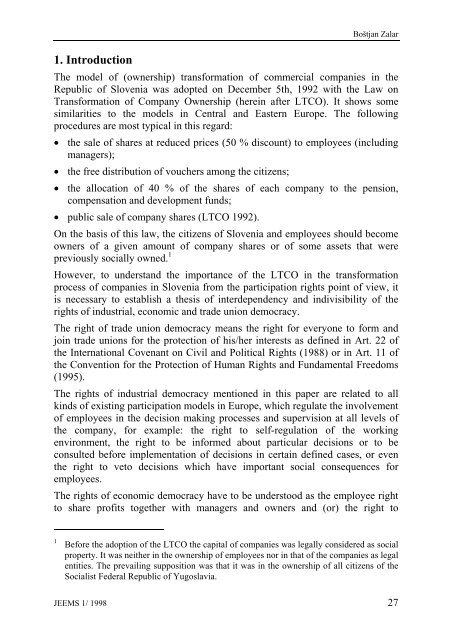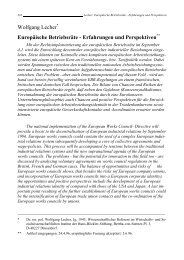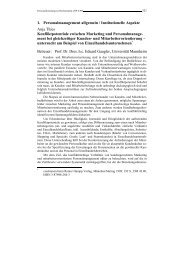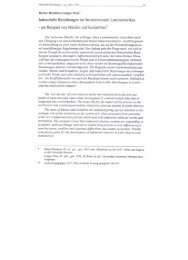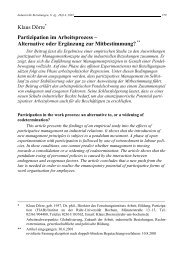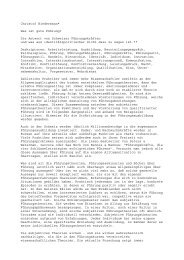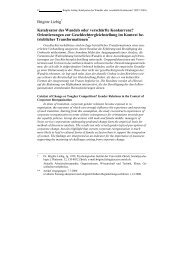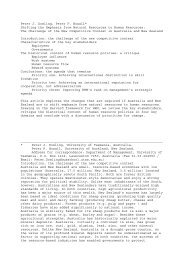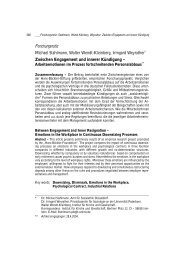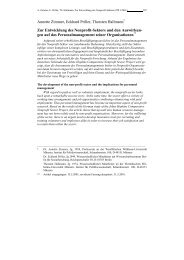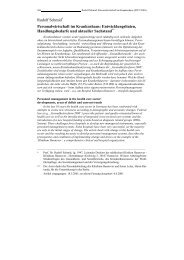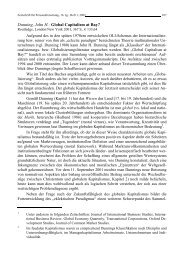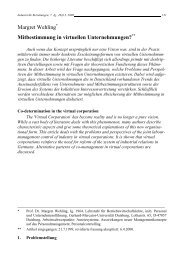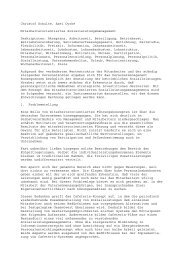1/98 - Rainer Hampp Verlag
1/98 - Rainer Hampp Verlag
1/98 - Rainer Hampp Verlag
You also want an ePaper? Increase the reach of your titles
YUMPU automatically turns print PDFs into web optimized ePapers that Google loves.
1. Introduction<br />
Boštjan Zalar<br />
The model of (ownership) transformation of commercial companies in the<br />
Republic of Slovenia was adopted on December 5th, 1992 with the Law on<br />
Transformation of Company Ownership (herein after LTCO). It shows some<br />
similarities to the models in Central and Eastern Europe. The following<br />
procedures are most typical in this regard:<br />
the sale of shares at reduced prices (50 % discount) to employees (including<br />
managers);<br />
the free distribution of vouchers among the citizens;<br />
the allocation of 40 % of the shares of each company to the pension,<br />
compensation and development funds;<br />
public sale of company shares (LTCO 1992).<br />
On the basis of this law, the citizens of Slovenia and employees should become<br />
owners of a given amount of company shares or of some assets that were<br />
previously socially owned. 1<br />
However, to understand the importance of the LTCO in the transformation<br />
process of companies in Slovenia from the participation rights point of view, it<br />
is necessary to establish a thesis of interdependency and indivisibility of the<br />
rights of industrial, economic and trade union democracy.<br />
The right of trade union democracy means the right for everyone to form and<br />
join trade unions for the protection of his/her interests as defined in Art. 22 of<br />
the International Covenant on Civil and Political Rights (1<strong>98</strong>8) or in Art. 11 of<br />
the Convention for the Protection of Human Rights and Fundamental Freedoms<br />
(1995).<br />
The rights of industrial democracy mentioned in this paper are related to all<br />
kinds of existing participation models in Europe, which regulate the involvement<br />
of employees in the decision making processes and supervision at all levels of<br />
the company, for example: the right to self-regulation of the working<br />
environment, the right to be informed about particular decisions or to be<br />
consulted before implementation of decisions in certain defined cases, or even<br />
the right to veto decisions which have important social consequences for<br />
employees.<br />
The rights of economic democracy have to be understood as the employee right<br />
to share profits together with managers and owners and (or) the right to<br />
1<br />
Before the adoption of the LTCO the capital of companies was legally considered as social<br />
property. It was neither in the ownership of employees nor in that of the companies as legal<br />
entities. The prevailing supposition was that it was in the ownership of all citizens of the<br />
Socialist Federal Republic of Yugoslavia.<br />
JEEMS 1/ 19<strong>98</strong> 27


